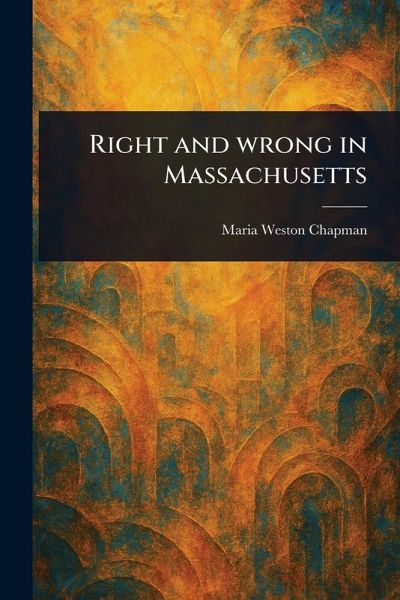
Right and Wrong in Massachusetts
Versandkostenfrei!
Versandfertig in über 4 Wochen
15,99 €
inkl. MwSt.
Weitere Ausgaben:

PAYBACK Punkte
8 °P sammeln!
"Right and Wrong in Massachusetts," meticulously prepared for print republication, offers a vital historical perspective on the antislavery movement in pre-Civil War America. Authored by Maria Weston Chapman, a prominent figure in the abolitionist cause, this work examines the complex social and political landscape of Massachusetts as it grappled with the issue of slavery. Focusing on the activities and influence of the Massachusetts Anti-Slavery Society, the book provides insight into the strategies, challenges, and internal dynamics of the abolitionist movement. Chapman's account sheds light...
"Right and Wrong in Massachusetts," meticulously prepared for print republication, offers a vital historical perspective on the antislavery movement in pre-Civil War America. Authored by Maria Weston Chapman, a prominent figure in the abolitionist cause, this work examines the complex social and political landscape of Massachusetts as it grappled with the issue of slavery. Focusing on the activities and influence of the Massachusetts Anti-Slavery Society, the book provides insight into the strategies, challenges, and internal dynamics of the abolitionist movement. Chapman's account sheds light on the debates and moral considerations surrounding slavery and social reform during this pivotal period in United States history. This volume is an essential resource for anyone interested in understanding the roots of the Civil War, the history of abolitionism, and the struggle for racial equality. "Right and Wrong in Massachusetts" remains a powerful testament to the individuals and organizations who fought to end slavery and shape a more just society. This work has been selected by scholars as being culturally important, and is part of the knowledge base of civilization as we know it. This work is in the public domain in the United States of America, and possibly other nations. Within the United States, you may freely copy and distribute this work, as no entity (individual or corporate) has a copyright on the body of the work. Scholars believe, and we concur, that this work is important enough to be preserved, reproduced, and made generally available to the public. We appreciate your support of the preservation process, and thank you for being an important part of keeping this knowledge alive and relevant.





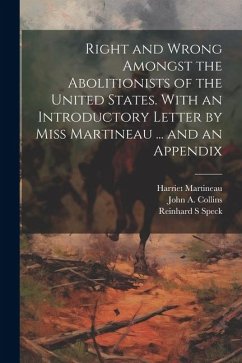
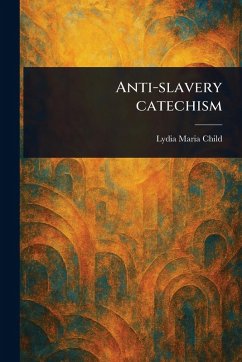
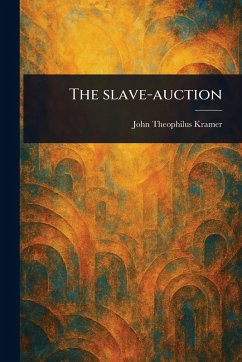
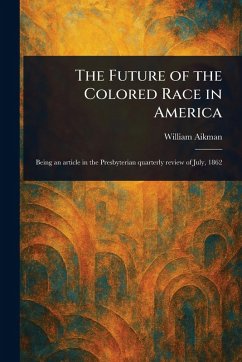
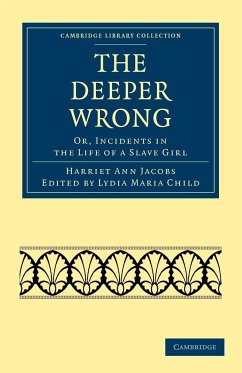
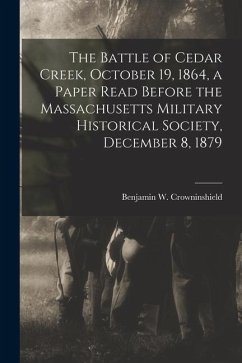
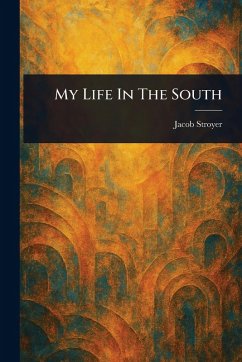
![A Journal of a Young Man of Massachusetts [microform]: Late a Surgeon on Board an American Privateer, Who Was Captured at Sea by the British, in May, Cover A Journal of a Young Man of Massachusetts [microform]: Late a Surgeon on Board an American Privateer, Who Was Captured at Sea by the British, in May,](https://bilder.buecher.de/produkte/65/65589/65589906n.jpg)

